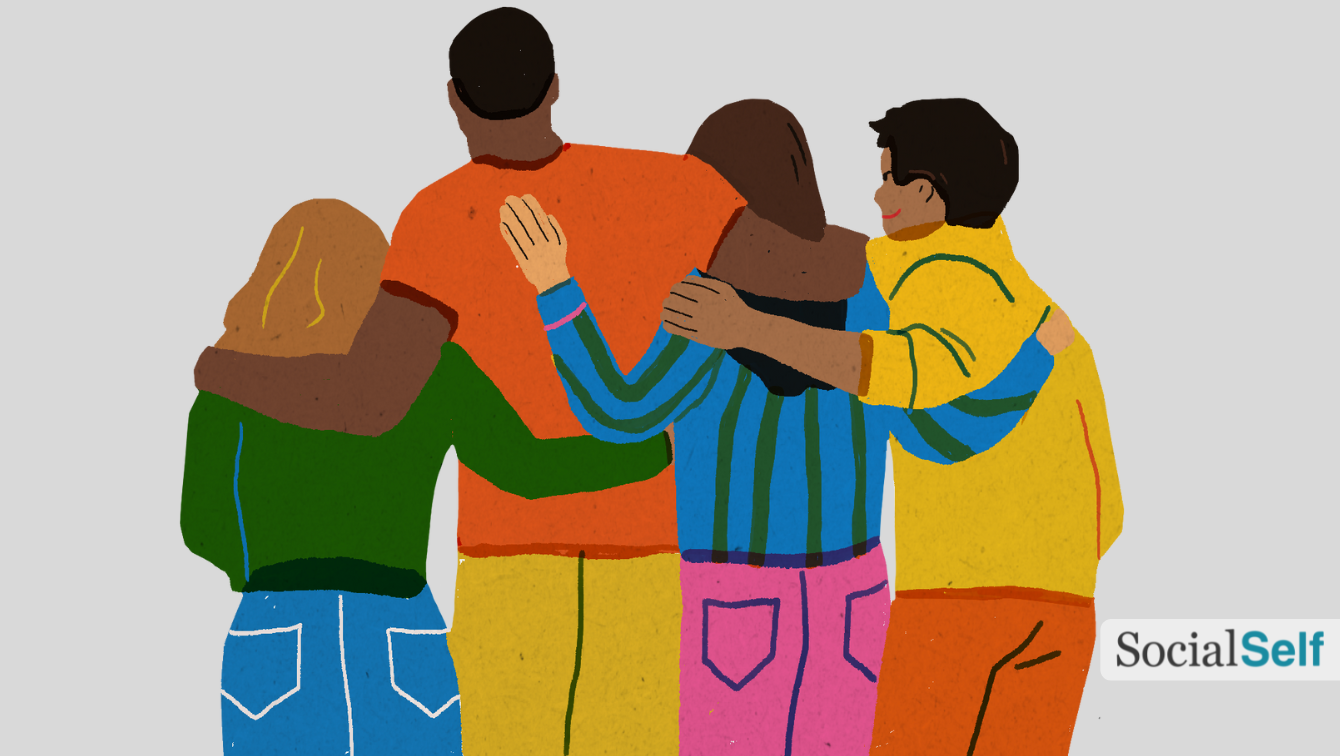
A study of 819 participants shows significant increases in self-reported social life quality one month after joining SocialSelf’s free and pay-for trainings.
About This Survey
58% of Americans feel like no one knows them well,1 but counseling can be prohibitively expensive and not widely available.2 Self-help is available online but has not curbed the ongoing loneliness pandemic.1
Results Overview
Participants were asked how different aspects of their social life had changed since they joined the SocialSelf training.
-
- 84 percent saw some improvement in their social skills and 16 percent saw strong improvement.
- 80 percent of those with social anxiety saw some improvement and 12 percent saw strong improvement.
- 79 percent have improved their self-confidence and 16 percent saw strong improvement.
- 72 percent have improved their self-esteem and 15 percent saw strong improvement.
- 80 percent have improved their conversation skills and 17 percent saw strong improvement.
- 71 percent have improved their life satisfaction and 12 percent saw strong improvement.
- 45 percent have improved their career and 11 percent saw strong improvement.
- 65 percent were less lonely and 14 percent were much less lonely.
- 65 percent have improved their friendships and 14 percent say their friendships are much better.
- 66 percent have gained at least one new friend, 46 percent have gained at least two new friends, and 25 percent have gained at least three new friends.
Why Personalized Social Skills Advice?
The SocialSelf training adapts to each participant’s unique personality and goals. Because of this, SocialSelf can offer more tailored material than other resources available on the Internet.
How Does the SocialSelf Training Work?
When users sign up, they fill out a survey about their current life situation and goals. SocialSelf’s software then personalizes the advice they received based on their responses.
| Example issue | Example advice |
| A person with moderate social anxiety finds it hard to form new connections but has no problem maintaining existing friendships. | How to take initiative around new people. How to expose yourself to slightly challenging situations. How to avoid subtle avoidance behaviors. |
| A person with low social anxiety is good at engaging with new people but has a hard time maintaining friendships. | How to improve empathy. How to increase coordination in long-term relationships. How to develop rapport. |
| A person struggles with self-esteem and feels like they aren’t interesting to talk to. | Learning the benefits of self-disclosure. How to self-disclose. How to develop self-esteem. |
The advice can be combined in thousands of different ways, but each user only sees one seamless experience which prevents information overload. The system is based on thousands of user interviews and findings in social psychology. It has been developed together with therapists, counselors, and experts on social interaction.
Social Skills
84 percent saw some improvement in their social skills and 16 percent saw strong improvement.
How have your social skills changed since you joined our training?
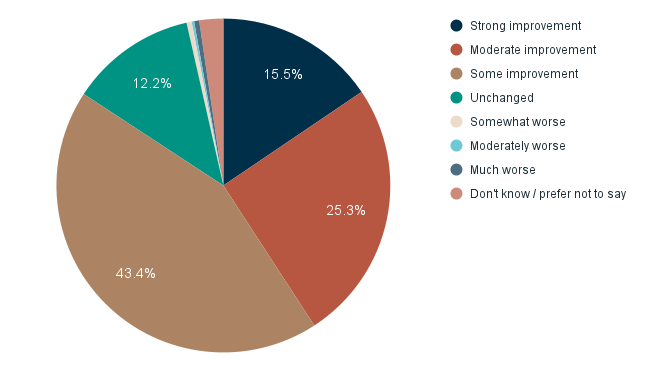
Social Anxiety
80 percent of those with social anxiety saw some improvement and 12 percent saw strong improvement.
How has your social anxiety changed since you joined our training?
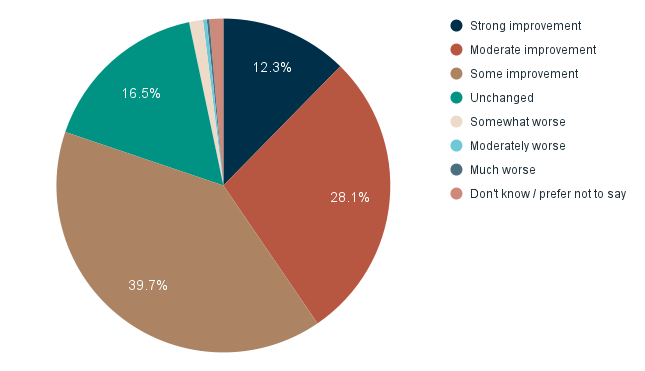
Self-Confidence
79 percent have improved their self-confidence and 16 percent saw strong improvement.
How has your self-confidence changed since you joined our training?
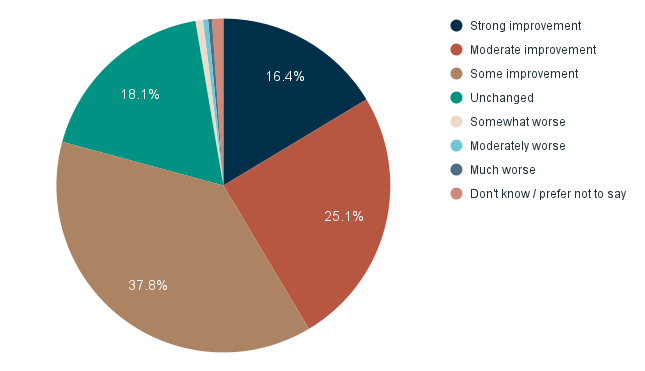
Self-Esteem
72 percent have improved their self-esteem and 15 percent saw strong improvement.
How has your self-esteem changed since you joined our training?
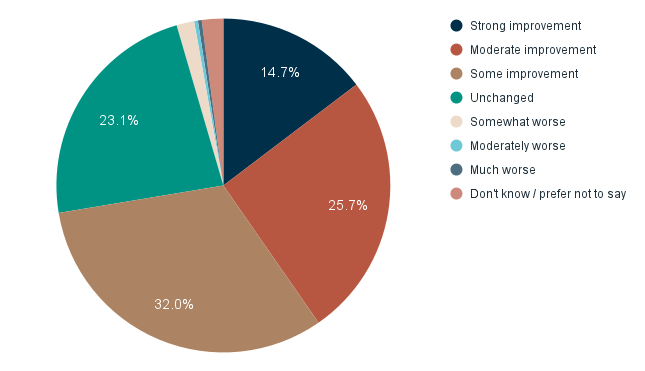
Conversation Skills
80 percent have improved their conversation skills and 17 percent saw strong improvement.
How have your conversation skills changed since you joined our training?
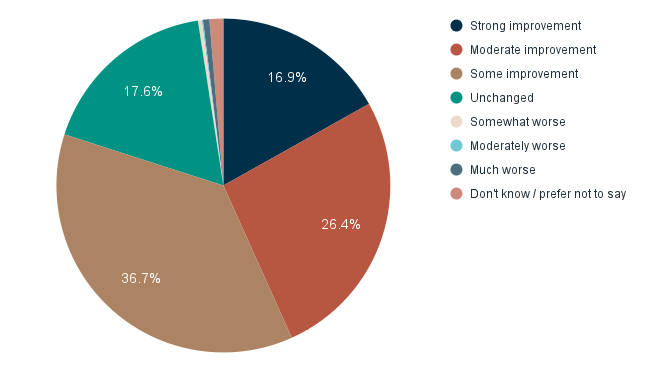
Life Satisfaction
71 percent have improved their life satisfaction and 12 percent saw strong improvement.
How has your life satisfaction changed since you joined our training?
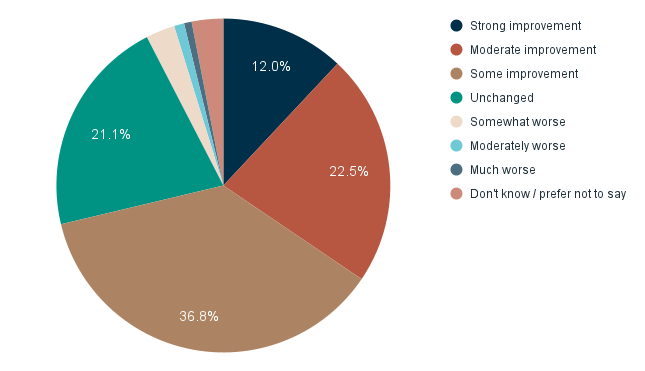
Career
45 percent have improved their career and 11 percent saw strong improvement.
How has your career changed since you joined our training?
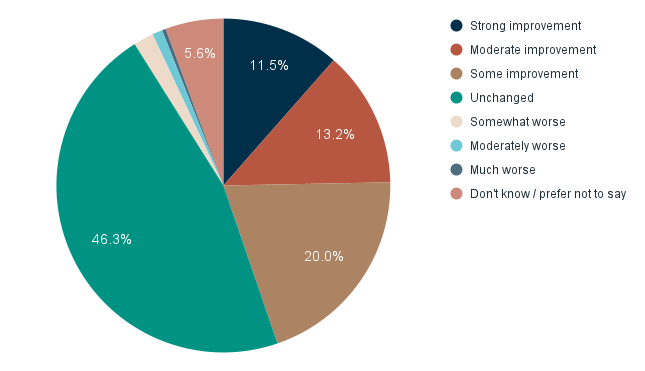
Loneliness
65 percent were less lonely and 14 percent were much less lonely.
How has your loneliness changed since you joined our training?
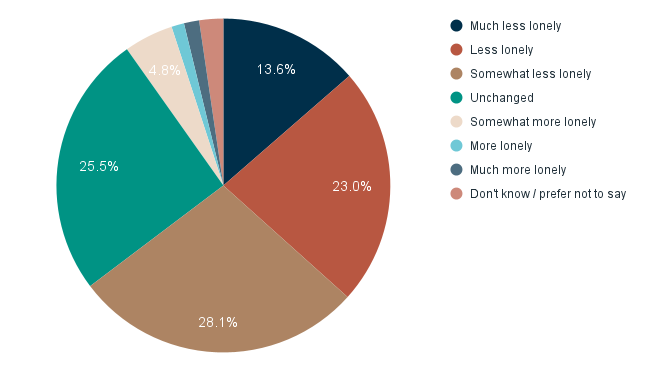
Friendships
65 percent have improved their friendships and 14 percent say their friendships are much better.
How have your friendships changed since you joined our training?
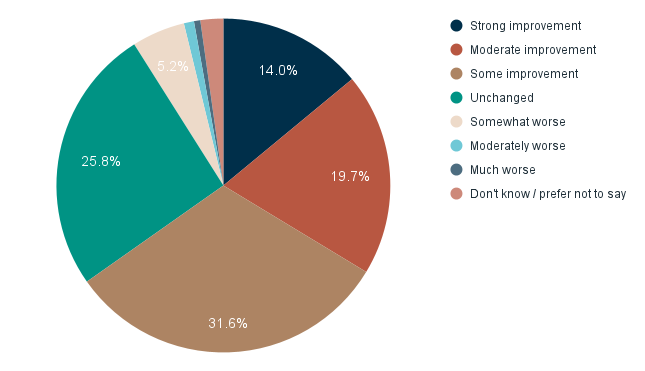
New friends
66 percent have gained at least one new friend, 46 percent have gained at least two new friends, and 25 percent have gained at least three new friends.
Have you gained any new friends since you joined our training?
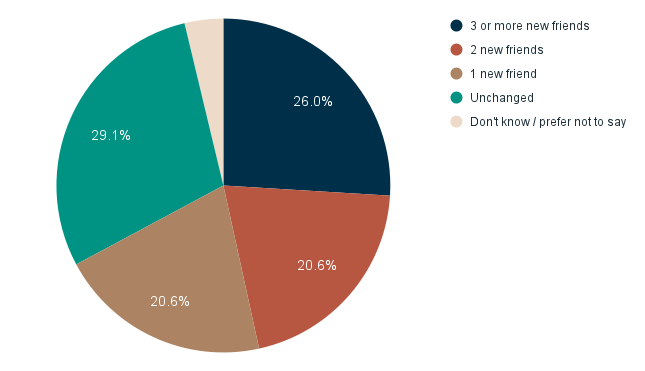
Comments From Participants
Participants were asked how the SocialSelf Training had affected them. This is what they said:
Your advice has been particularly helpful in the way that it doesn’t overload or bombard me with information. It’s quite succinct and clear, which leaves a long-lasting impression. I also like how your advice is accompanied and supported by anecdotal information/personal stories or examples which serve as an encouraging reminder that self-esteem/confidence/social struggles are shared by many people and that they can be combatted or better addressed with the right mindset and application of constructive advice. – Woman, 17, Australia
Some of the pointers are helpful and I try new things out when speaking to people. That helps with how I am consciously dealing with my social anxiety. But being part of the mailing list I think gives me comfort on a subconscious level that I am not going through this alone, it happens to many other people too. – Man, 41, UK
Your advice has helped me to cope with my anxiety in social situations and how to just be myself and love myself too. Also, I was able to make friends because of this advice. – Woman, 43, Bahamas.
I used to be really nervous about doing anything in public that involved interacting with people. School, going to the shops, going to the park, all of it was really challenging. Your advice has been really helpful in making it easier for me to break down, process, and understand things, which has allowed me to break boundaries with my anxiety. – Woman, 18, UK
The advice I received has allowed me to become a more open and genuine version of myself. I am so far very happy – Man, 21, Australia
I use to be very shy and it always bothered me, but ever since I joined this email list I have put myself out there a lot more and now I have made a lot more friends and I am now more talkative with people who I see every day but have had never talked to before. I also feel comfortable when there is silence when I’m hanging out with someone and I know that it is ok to not talk sometimes. – Woman, 18, USA
3 months ago I stressed about speaking in a work meeting with 8 people and would say very little, now I am one of the main talkers in the meeting and am excited about the next meeting in which I have a short presentation to give. – Woman, 35, UK
The advice given in these emails has helped me understand my own motivations, and thoughts about how I approach my friendships and relationships. I have thanks to the advice given gained several friends. – Man, 17, USA
My social anxiety is almost nonexistent right now, and a few years ago, it was very bad and prevented me from making friends, socializing normally, and being happy. Your advice has played a big role in achieving this. – Man, 20, Croatia
I’m autistic so the advice has been very beneficial for me especially during conversations, knowing what to say and staying relaxed. I’m less tense now and feel confident that I can carry a conversation. – Man, 21, Scotland
Research Methodology
A survey was sent out to training participants asking them to rate how aspects of their social life had changed since joining the training.
They were given the following alternatives:
- Strong improvement
- Moderate improvement
- Some improvement
- Unchanged
- Somewhat worse
- Moderately worse
- Much worse
- Don’t know / prefer not to say
Results were gathered between Nov 10 and Nov 15, 2022.
References
- Cigna (2020). Loneliness and the workplace: 2020. U.S. report https://www.cigna.com/static/www-cigna-com/docs/about-us/newsroom/studies-and-reports/combatting-loneliness/cigna-2020-loneliness-factsheet.pdf
- Conroy, J., Lin, L., & Ghaness, A. (2020, July 1). Why people aren’t getting the care they need. Monitor on Psychology, 51(5). https://www.apa.org/monitor/2020/07/datapoint-care